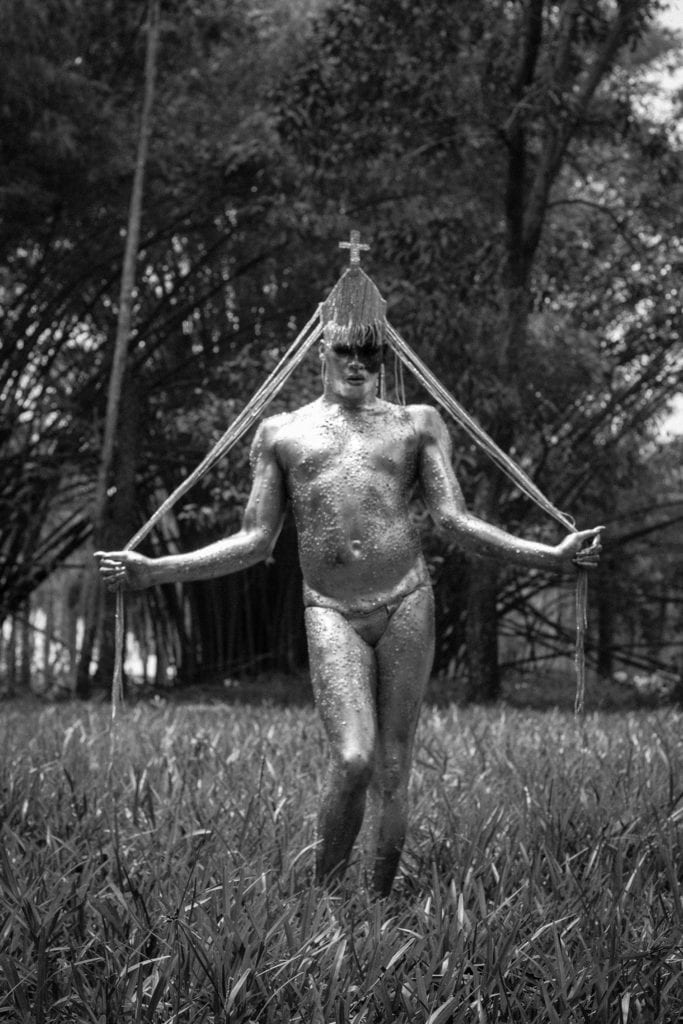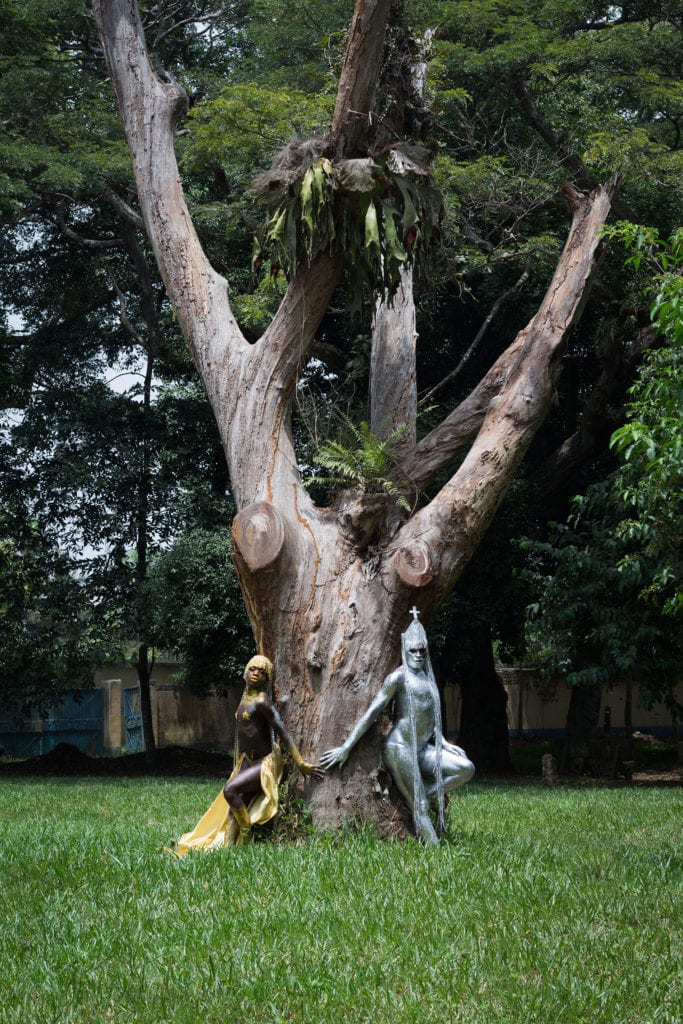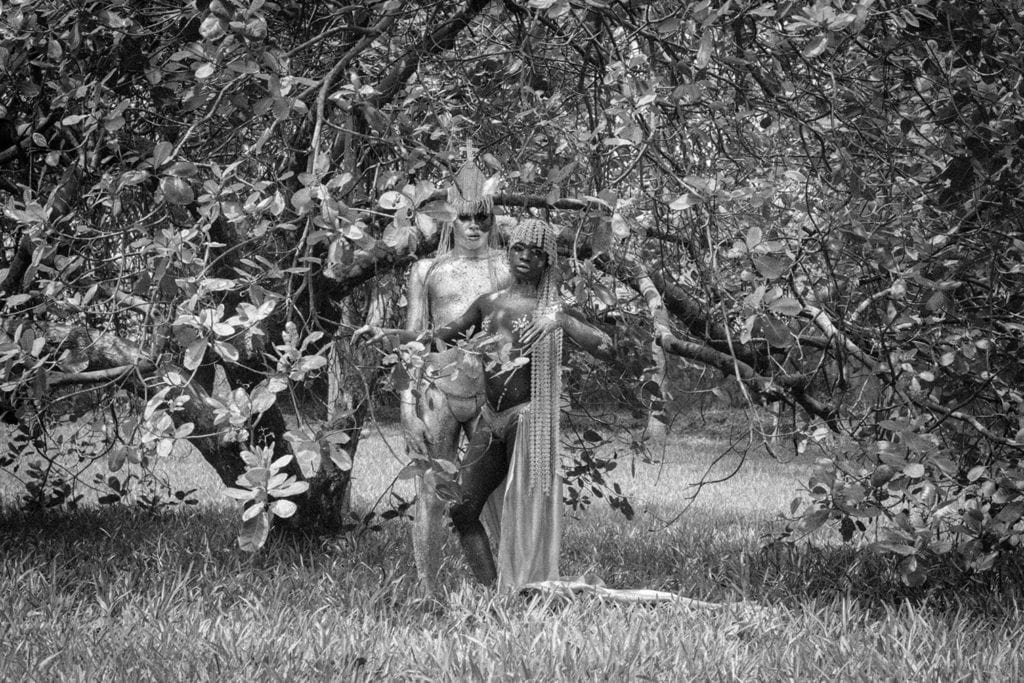In the latter half of 2019, unprecedented flooding consumed the streets and homes of Grand-Bassam — Ivory Coast’s first colonial capital, now listed as a UNESCO World Heritage Site. Once bustling roads became passable only by canoe. Historical sites saw serious damage. According to a World Bank Study, West African nations are losing as much as $3.8 bn a year to coastal erosion, and Ivory Coast is one of the worst hit. The country has lost $2 bn to the rising sea levels, equating to nearly 5 per cent of its GDP.
Now at risk of erasure, the eclectic mix of traditional and modern culture breathing life into Grand-Bassam is the subject of Ngadi Smart’s latest series for Atmos magazine.
Speaking to British Journal of Photography after making the Portrait of Humanity 2020 shortlist, the Sierra Leonean artist describes a city defined by dichotomy. Arresting colonial ruins — crumbling evidence of the former French rule — hark of functionalism and adaptation: western town planning’s response to a tropical climate. However, the indigenous N’zima people who live amongst it embody a much deeper, and more permanent, history.
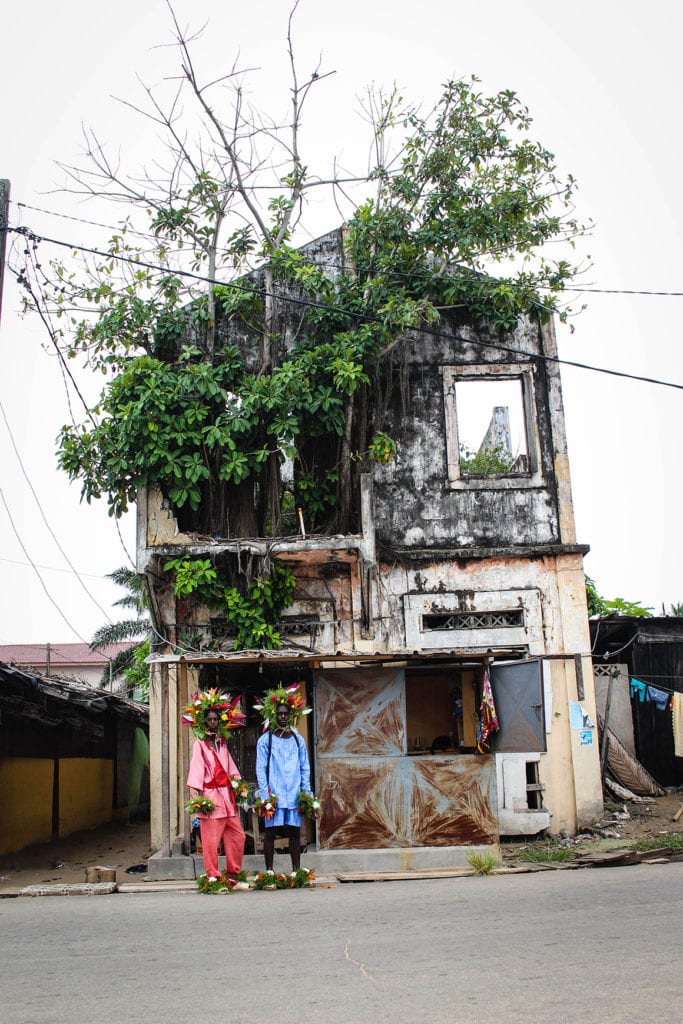
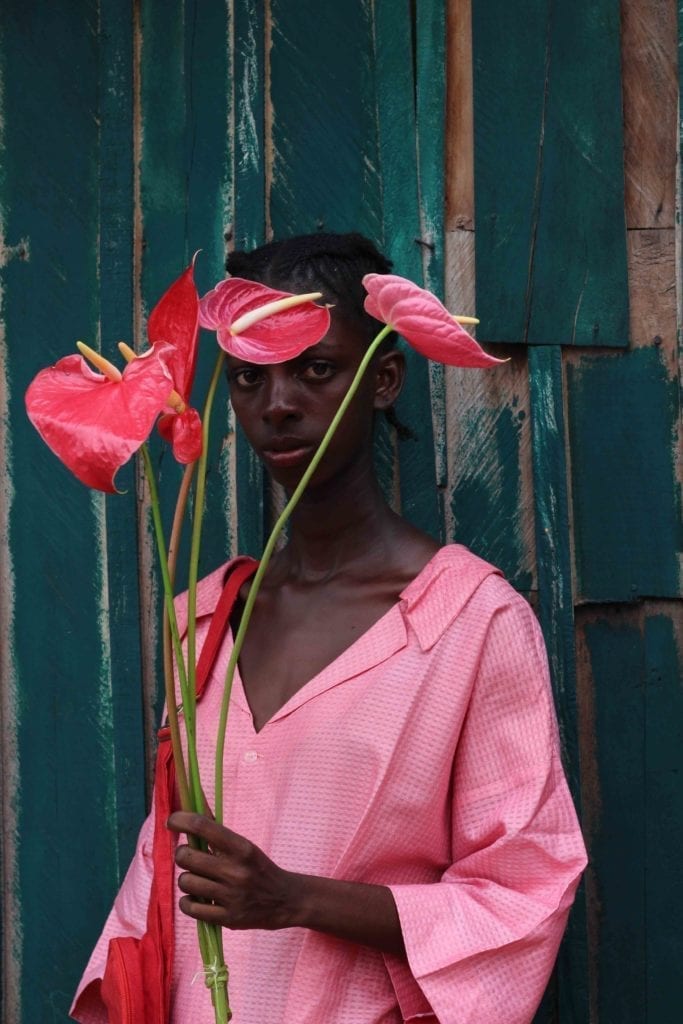
“Indigenous people share a spiritual, cultural, social and economic relationship with their traditional lands,” Smart explains. “But with the lack of investment in environmental infrastructure and implementation, the future of small communities and cultures such as this one is threatened — and this happens all over the world.”
Taking the format of a fashion editorial, Smart’s series, entitled Freedom, sees local models showcase the sustainable clothing and accessories of ethical local designers and artisans — fierce, even regal, as the models’ vibrant palettes clash against the backdrop of decrepit 19th and 20th century architecture. From the hand and feet ornaments inspired by Ivorian traditional raffia wear (worn by Guro and Yacouba people during dance ceremonies) to contemporary clothing designs by Kader Diaby of the emerging Ivorian brand Olooh Concept, the shoot celebrates the cultural fusion “imprinted in the Bassam way of life.”
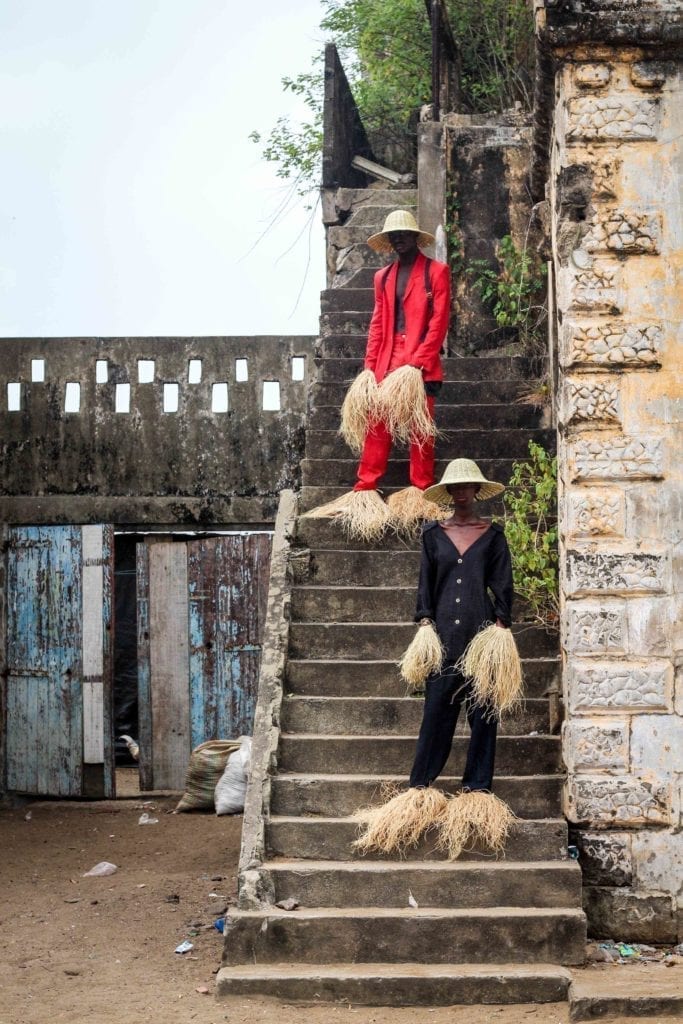
©Ngadi Smart 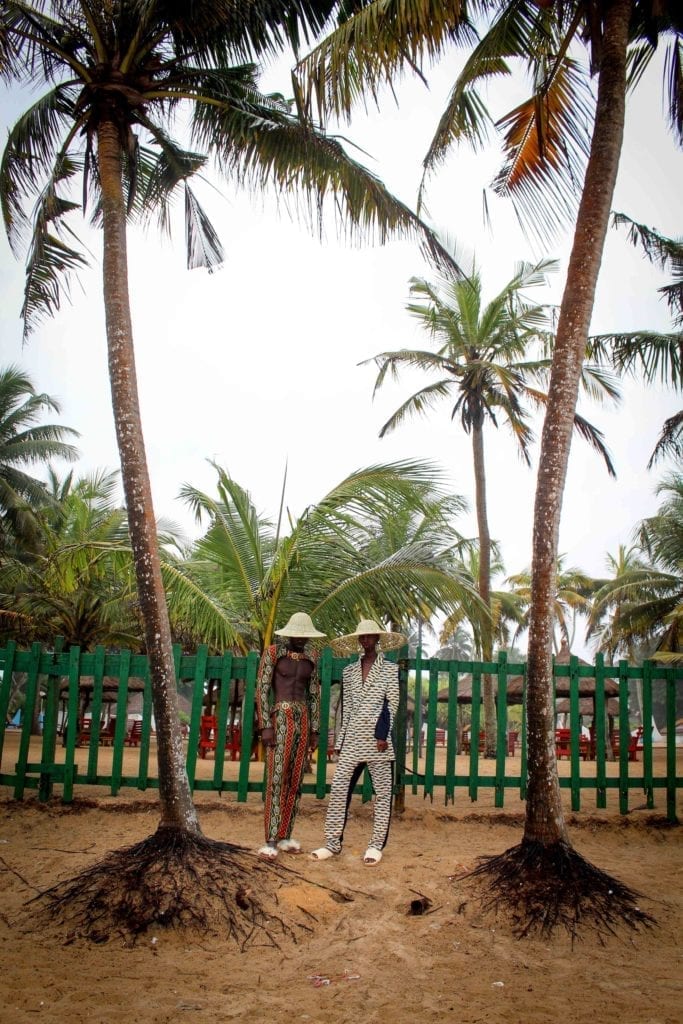
©Ngadi Smart 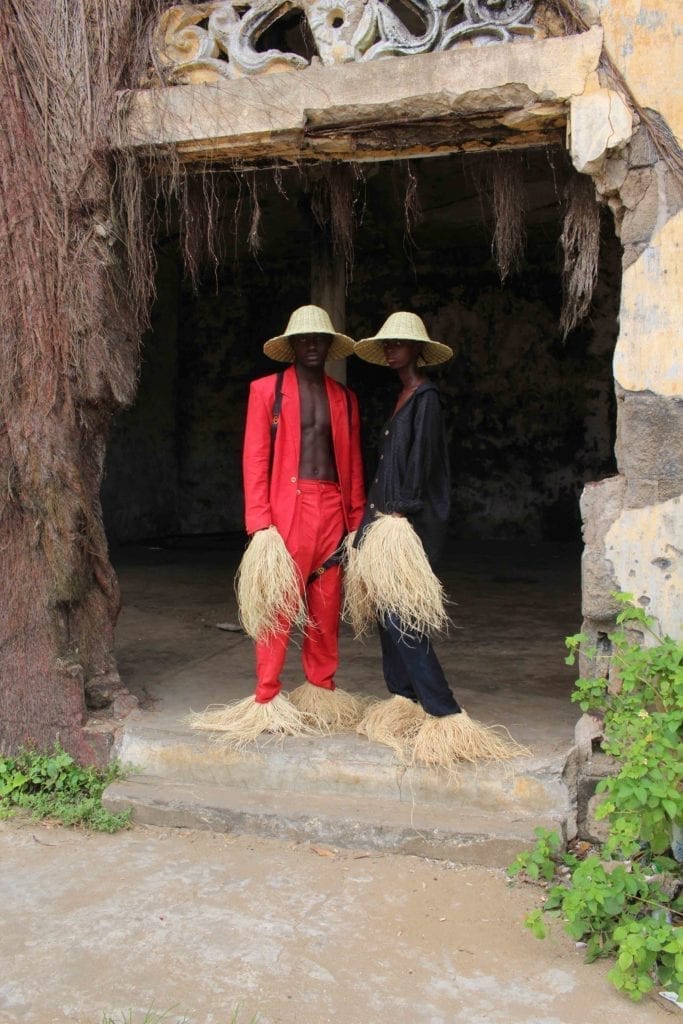
©Ngadi Smart
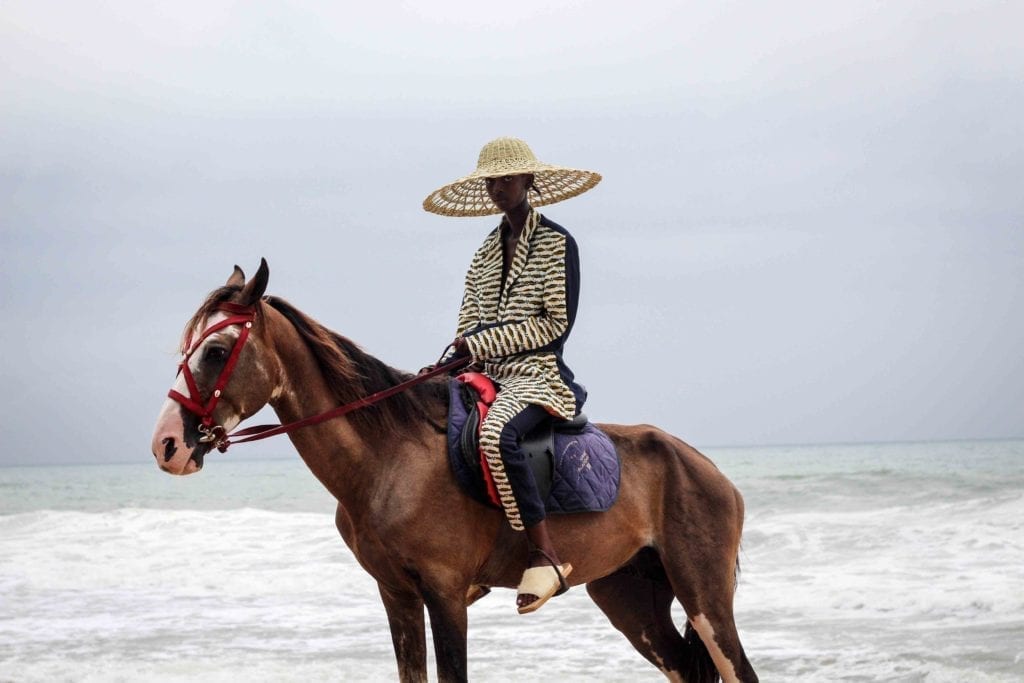
Smart’s celebration of the nuances of West African identity can be found in equal measure in the recent Queens of Babi, which documents the opulent underground drag community of Abidijan, Ivory Coast. With LGBTQ+ acceptance in the Ivory Coast greatly lacking, for two years, until 2018, members of the drag community in Abidjan would meet discreetly in an undisclosed bar to hold drag balls — until the adversities they faced overwhelmed them, and they had to disband.
Evidently, the intrinsic need to create, express and celebrate themselves never waned. Queens of Babi features Kesse Ane Assande Elvis Presley, or ‘Britney Spears’ to friends, and Mohamed, aka ‘Baba’, parading in magnificent costumes they conceptualised and crafted from scratch. “The reporting of LGBTQ communities in Franco-African societies is also not readily and commonly published,” says Smart. “One of the particularities in West Africa is that LGBTQ mobilising at the community level is relatively new. In Abidjan, there are no real LGBTQ organisations and the members I photographed told me they were often unable to go into certain neighbourhoods for fear of being assaulted, or losing their life.”
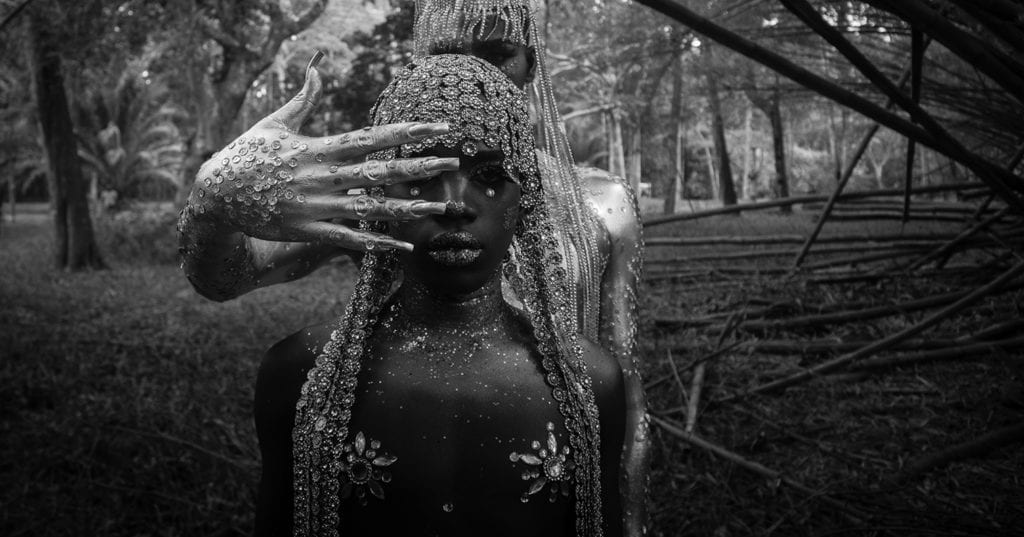
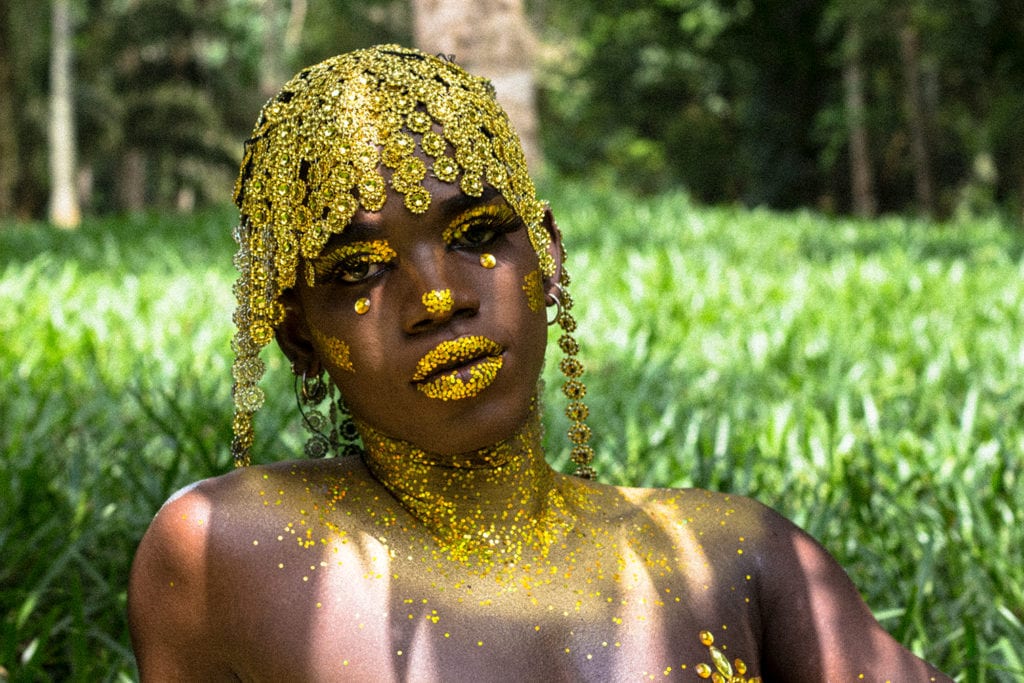
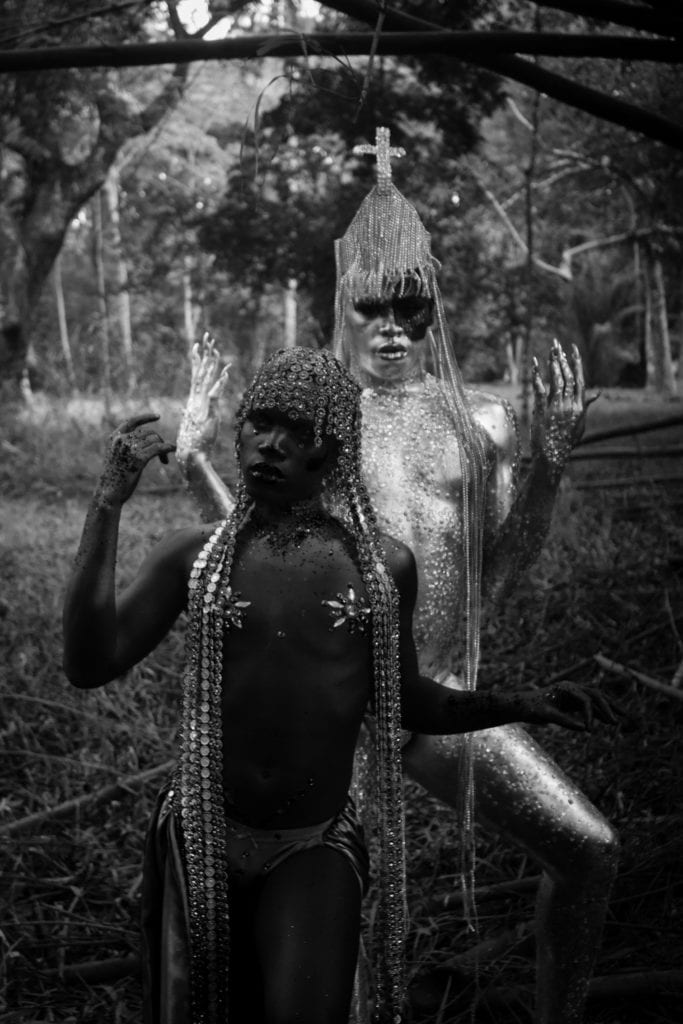
Smart’s mission, then, is to change the way that African identities — in all their multifaceted glory — are perceived, accepted, and protected. “For too long, Black bodies have been the subject of exoticism and dehumanisation within the art world,” she says. “There is an obvious shift in interest in Black pride and African pride thanks to the generation of young creatives currently emerging from the continent. As African creatives, we now have the tools to tell our own story, and do it in our own way.”
Enter Portrait of Humanity 2021 here (Deadline 22 October 2020 – 23:59 UK Time)
